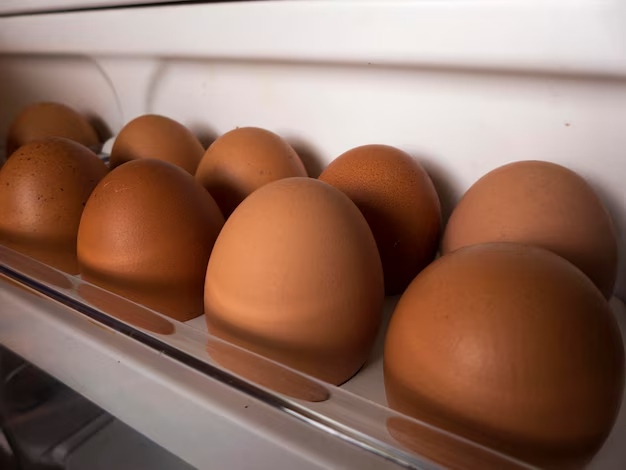How Long Do Eggs Really Last in the Refrigerator?
When you open the door of your refrigerator, eggs may well be one of the most common staples you see. Versatile, nutritious, and the star of many delicious dishes, eggs are a kitchen essential. But like any perishable food item, they have a shelf life. Understanding how long eggs last in the refrigerator, and how to keep them fresh for longer, can prevent food waste and ensure you get the best out of this wonderful ingredient.
🥚 Understanding Egg Freshness
Eggs, like many foods, have a timeline for their freshness. How long they last depends on a variety of factors, including how they’re stored and whether they've been cooked. Here's what you need to know:
The Life of Uncooked Eggs
- Refrigerated Whole Eggs: When stored properly in the refrigerator, whole uncooked eggs can last three to five weeks from the time they are placed in the fridge. This extends slightly beyond their sell-by or expiration date on the carton.
- Egg Whites and Yolks: If you separate the whites and yolks, each can last differently. Whites can keep for up to four days, while yolks need to be consumed within one to two days. Freezing can extend their life significantly.
Cooked Eggs’ Shelf Life
- Hard-Cooked Eggs: These eggs, if refrigerated, should be eaten within one week. They spoil faster because cooking removes the protective coating that keeps out bacteria.
- Other Cooked Eggs: Dishes like scrambled eggs should ideally be eaten immediately but can last up to three to four days when stored in an airtight container in the refrigerator.
🧊 Tips for Storing Eggs Correctly
Proper storage is crucial to extending the life of your eggs and maintaining their quality:
Refrigerator Best Practices
- Placement in the Fridge: Always store eggs in the main body of the refrigerator rather than the door. The consistent and cooler temperature ensures they last longer.
- Original Carton: Keep eggs in their original carton, which protects them from absorbing strong odors and flavors of other foods.
- Temperature: Eggs should be stored at a consistent temperature of 40°F (4°C) or colder.
Extending the Life of Eggs
- Freezing Eggs: If you can't use your eggs before their freshness window closes, consider freezing them. Beat the whites and yolks together before freezing. They can last up to a year and be thawed when needed.
- Using Preservatives: Some prefer to apply mineral oil lightly over the egg shells to extend their shelf life. It acts as a protective barrier similar to the egg’s natural bloom.
💡 Recognizing Bad Eggs
Even with careful storage, eggs can go bad. Recognizing the signs is essential to avoid any food safety issues.
Signs of Spoilage
- The Float Test: One popular way to test an egg's freshness is the float test. Fill a bowl with water and place the egg in it. A fresh egg will sink, while an old egg will float because of the larger air cell.
- Smell: A bad egg will have a distinctive sulfur smell, which can be a dead giveaway of spoilage.
- Appearance: Check for any unusual discoloration or powdery spots on the shell, which could be signs of mold. Once cracked, if the yolk is discolored or runny instead of being firm, it may be spoiled.
🥚+🚚 Buying Eggs: What to Look For
A mindful approach to purchasing eggs can also help ensure you get the freshest ones possible.
Choosing the Best Eggs
- Check the Expiration Date: Always look for the “sell by” or “expiration” date to ensure you’re buying the freshest eggs.
- Open the Carton: Quickly inspect the eggs for cracks and cleanliness. Dirty or cracked eggs are more susceptible to bacteria.
🌱 The Impact of Egg Types on Shelf Life
Different types of eggs may have slightly varying shelf lives. Here’s how different farming methods impact longevity:
Types of Egg Farming
- Conventional Eggs: Typically, these eggs have a protective washing process that removes the egg's natural protective coating, slightly reducing shelf life.
- Organic/Free-Range Eggs: These eggs might have more natural variations in their longevity due to different feed and handling, yet they last similarly to conventional eggs if stored properly.
📋 Quick Reference: Egg Shelf Life
Here’s a handy bullet-point list to summarize eggs’ shelf life and storage tips:
- Whole Fresh Eggs: In fridge - 3 to 5 weeks
- Raw Egg Whites: In fridge - Up to 4 days
- Raw Egg Yolks: In fridge - 1 to 2 days
- Hard-Cooked Eggs: In fridge - Up to 1 week
- Scrambled/Cooked Eggs: In fridge - 3 to 4 days
- Frozen Eggs: Whipped - Up to 1 year
- Storage Temp: Always below 40°F (4°C)
Freshness Check Emoji Summary 🌟
- Floats? 🥚🚫 Spoiled, 🌊
- Odor? 👃🚫 Sulfur Smell
- Visual? 👀 Discolored Yolks
Final Insights on Egg Storage
Keeping your eggs refrigerated correctly, understanding their lifespan, and checking for freshness are all key practices in enjoying eggs safely. These small steps help avoid waste and maximize the nutritional benefits eggs offer. By understanding when eggs are at their best, you empower yourself with knowledge to make the most out of this versatile ingredient, enhancing meals with confidence.
Remember, while this guide provides a general framework, personal judgment and safe food handling practices should always dictate specific decisions in your kitchen. Enjoy your culinary endeavors with eggs! 🍳

